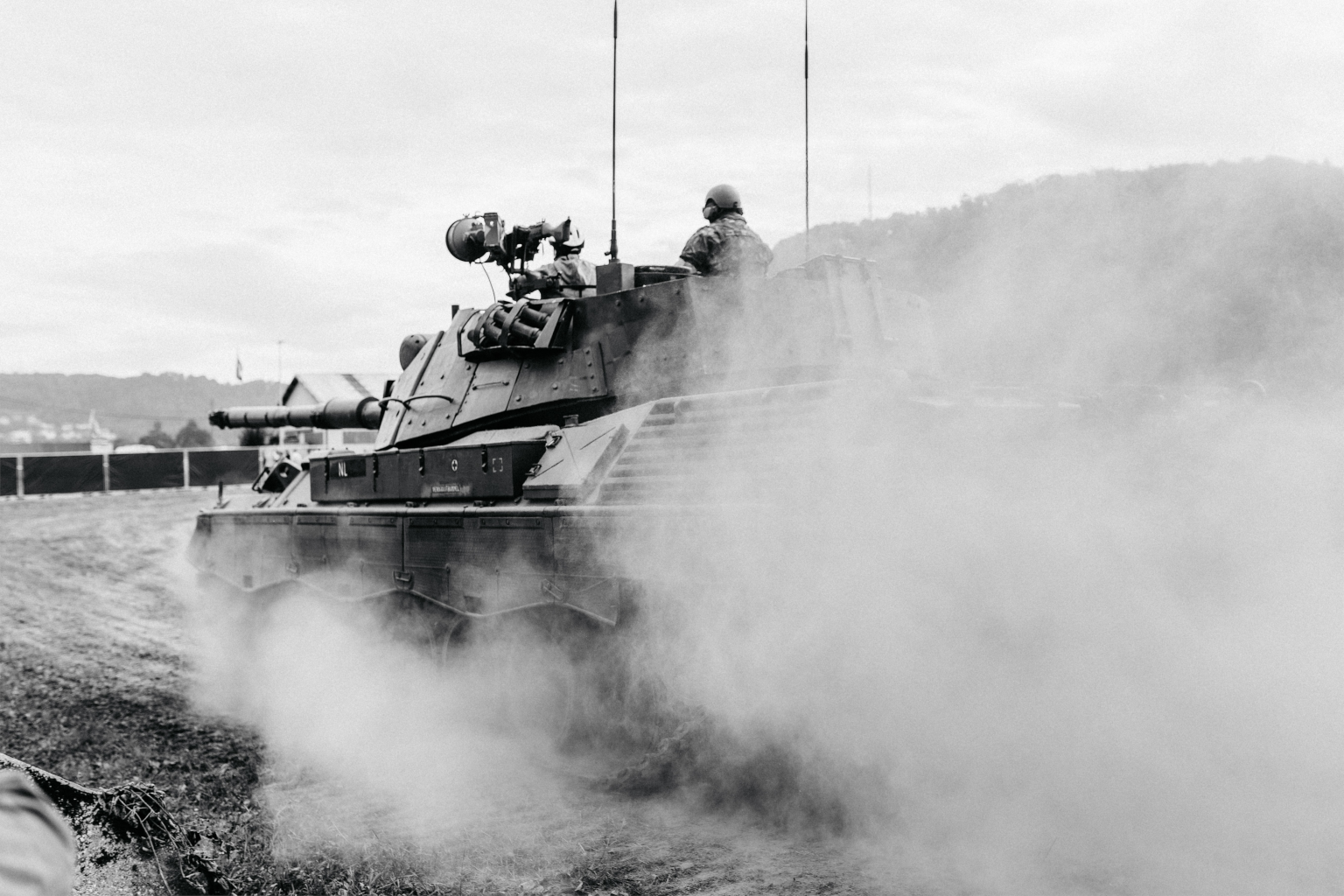Dear investors,
Our last letter talked about the difficulty of predicting the macroeconomic scenario and, a week after it was published, Russia invaded Ukraine. History shows that wars are always unpredictable and full of twists and turns, so any inference about the future becomes a very challenging task. In this letter, we would like to share our reflections on the current moment and tell you what we have been up to at the Ártica Long Term FIA.
The uncertainty created by war
“Fog of war” is a military term that represents the difficulty of having reliable information about what is happening in the midst of combat and, consequently, the difficulty of drawing up a plan of action. New information arrives all the time, both true and false, and decisions need to be made with a good deal of uncertainty. In addition to military conflict, wars are also fought on an economic level. Harming the economy of the enemy country to make it unable to maintain the high costs of military conflict is a classic strategy that we are seeing in practice during the war between Russia and Ukraine, in which several western countries took the decision not to get involved in the military conflict, but reportedly entered into economic warfare with Russia through sanctions packages. Due to how globalized and complex the economy is today, these sanctions do not only affect the countries and sectors directly involved. As they break links in supply chains (and establish new ones), sanctions have far-reaching and difficult-to-predict knock-on effects, cascading down to many companies around the world that they were not intentionally targeted, but become part of the collateral damage. In addition, sanctions can appear or disappear in short periods of time, making the fog that also extends over the economic sphere even thicker. Estimating the duration, size and economic impact of wars is virtually impossible, so we will not make any kind of claims in this regard. However, this does not prevent us from trying to understand the impact that this scenario of uncertainty has on the markets, and reflect on what is the most rational approach to take care of our investments during this period.
the fear of the unknown
Fearing the unknown is one of the primitive human behaviors and, to a greater or lesser extent, it is present in all of us. In several studies, researchers have shown that unpredictability causes discomfort in most people. In one such study, participants played a game in which mistakes caused small electrical shocks (which didn't cause harm, but hurt) and had their physiological responses related to stress (such as changes in pupil diameter) measured by researchers. The result was interesting: in games in which participants went through a series of moments in which they had a 50% chance of receiving shocks, the level of stress presented was greater than in situations in which they were exposed to a predictable sequence of shocks, which occurred with 100% for sure. Although counterintuitive, as any chance below 100% should be better than the certainty of getting shocked every time, this is how human instinct works. We found the subject pertinent because it allows us to understand that psychological factors affect professional and sophisticated investors in the same way that they affect other people. In general, sophisticated people are less likely to admit when their actions are influenced by their fears, but they continue to live with them. In moments of great uncertainty, the possibilities that the future holds are left to the imagination of each one and the darkest theses are usually the ones that gain the most attention. Thus, the instinctive behavior of an investor at these times is to look for classes of assets that seem to him to be the safest, even if they have a risk-return ratio that would be interpreted as unfavorable in normal situations. There is a second psychological factor that we believe is contributing to what we are seeing in the markets.
The availability bias
To care about something, you must first remember that it exists. As our memory is very dependent on the number of times we receive information and how recent these contacts with it were, we tend to be much more concerned with the subjects on the agenda in the media, or that had a relevant presence in our recent past in another way , than with all the other aspects of the world that remain ongoing but out of focus at the moment. This tendency to overestimate the importance of the information that most readily comes to mind is called the availability bias: one of several cognitive biases that deviate human judgment from pure rationality. This bias can cause exaggeration both in moments of optimism, when we only remember the good things and neglect the risks, and in moments of pessimism, when we pay more attention to risks and make them seem bigger than they actually are. Any subject widely covered by the media ends up causing a bias of availability in most people. During the pandemic, for example, many were more concerned with the risk imposed by Covid than with all other life risks, which did not cease to exist in the same period. Now, with the war between Russia and Ukraine being reported daily, the tendency is for the focus of our concerns to turn to it. Note that we are not underestimating the severity of either of these two events, just emphasizing that there is a bias in increasing the weight given to these factors in relation to what would be the weight attributed to them if we were purely rational. Now, let's take a look at how these factors have influenced the stock market.
A feedback loop
In recent months, we have had several negative factors emerging almost simultaneously: i) we had the Ômicron wave of Covid, which reheated concerns and problems related to the pandemic; ii) interest rates in Brazil almost doubled from September 2021 until today, stimulating the migration of investors from the stock exchange to fixed income; and iii) the war between Russia and Ukraine began, which led to the emergence of a series of economic sanctions. This news is objectively bad for the economy in general, so it was expected that it would cause negative reactions in the market. Additionally, we have two relevant sources of uncertainty: the unpredictable course of the war and the approaching presidential elections in the midst of a very polarized political scenario. The way in which all this lined up in this period tends to provoke a feedback cycle of pessimism. This cycle can unfold as follows:
- Negative news causes an initial drop in stock prices;
- The fall itself generates concern among investors, who start paying more attention to the risks to which they are exposed;
- The elements of uncertainty in war and elections make it difficult to measure their economic impacts, which causes fear and distress in investors;
- Defensively, many shift their equity investments to other asset classes, putting further pressure on the share price;
- The continuity of the decline brings more media attention, the availability bias becomes increasingly present and the cycle is fed back.
The tone may seem pessimistic, but our reflections seek to assess whether the current pessimism is exacerbated or not, so that we can position ourselves accordingly. In this regard, we are going to talk briefly about the impact of the war on the companies invested by Ártica LT FIA and then we will comment on our current approach to fund management.
The impact of war on our portfolio
We dare say that this is one of the moments in which there are advantages to being Brazilian. With Brazil far from the battlefields, little involved in geopolitical issues related to the conflict and seeking to remain neutral in international relations, the impact we suffer tends to be limited. The main point of attention is the commodities market, which ends up interfering in the cost structure of various economic activities. For our portfolio, we anticipate a limited impact, as our investees do not consume large volumes of oil derivatives (commodities most affected by the war), do not consume agricultural inputs (affected by Russia's role in supplying fertilizers to Brazil) and have the most of its demand comes from the Brazilian market itself. The possible negative impact could come from an increase in the price of steel and aluminum, which are relevant cost components in some of our investees. However, Russia currently only accounts for ~4% of global iron ore production and ~2% of global aluminum oxide production, so its supply disruption is much less impactful than in the case of oil, where Russia accounts for ~12% of global production. Despite the limited impact of the war, the price of our portfolio has been falling in recent weeks. Part of the drop is certainly related to the rise in interest rates and Brazilian political uncertainty, but part of it seems to be related to the effect of the uncertainties and biases that we commented above. Anyway, the fall is not necessarily bad for us. We explain below.
still against the grain
A perfectly rational concept, but one that goes against the instincts of most investors, is that a stock price decline is beneficial while we are still looking for new purchases (as long as it is not accompanied by a deterioration in the company's earnings prospects). being purchased). An example that helps to visualize the point: if you are building a house and plan to buy building materials over the next year, is it better for the prices of these materials to rise or fall over the period? You will feel better about your past purchases if material prices continually rise, as they will all have been made at lower prices than they are today, but the final cost of the home will be higher. Conversely, past purchases will look like bad deals if prices are falling, as you would have paid less if you had just waited, but the total cost of the home will be lower. We still have cash available in Ártica LT FIA and we are one of the few funds in the market that currently has positive net inflows this year, so the price drop is welcome. Without despising the complexity of the moment, re-discussing our theses frequently and applying an extra dose of caution in each decision, we continue to move in the same direction as we mentioned in our last letter: we are buying shares in good companies that seem cheap to us and our team continues making new contributions to the fund. One last comment is that our best investments were made when we found opportunities with solid fundamentals and general market sentiment was against the move we made. In a way, it couldn't be different, because when everyone is buying the shares are expensive and when everyone is selling they are cheap, making following the majority a bad investment strategy.
“Be fearful when others are greedy and be greedy when others are fearful.” – Warren Buffet


